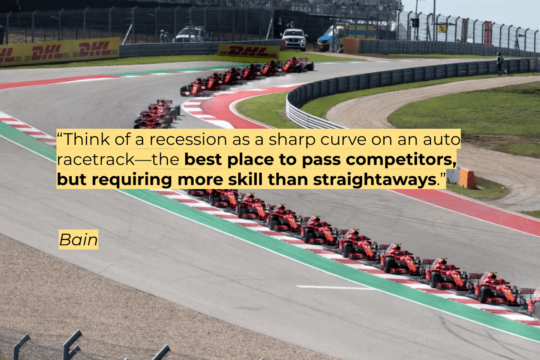Over the past 3 years, we’ve gone from 15 to 170. We thrived to date because we were willing to fight hard for the girl in the foxhole next to us and all acted like owners to make sure we managed to survive. The word “family” is used often internally and given many of us aren’t from Jakarta we became each others’ support network, friends, roommates and emergency contacts. We continue to maintain 3-4 xendit houses where xendit peeps live together and our regular parties are hosted there.
In every round of growth, our existing team had questions about if we’d lose the family feel and how new people would interact with old. I knew culture would change but I wanted to be at least purposeful and direct the change as much as we could to fit what we needed to succeed. So we began a journey to think harder about how we build culture and get real actionable about how we were going to shepherd culture as we got bigger.
In looking to build our culture, I was fascinated by those who have built long lasting cultures that make people do ostensibly irrational things. I looked at folks like Brain Chesky (Airbnb) all the way to characters like Washington, Stalin, Mao Zedong and cults. These leaders managed to use culture as strong tools to homogenise diverse groups of people on some dimensions, often beyond rational thought. Probably the best examples are religions – they have some of the strongest abilities to transcend countries and time so are fascinating studies for how to build scalable, long lasting culture.
Note: this is a WIP as we’re living this out live. It’s yet to be seen if this model continues to work going forwards.
Definitions
It’s vague, intangible yet important so I went in search of definitions that helped me understand how to control it and how we could affect it over time. Here are some we like because they lend themselves to action.
- Culture is the operating system of our company. This means culture a set of standards and methods by which different people interact and interface. We may all be on different teams/products but we have a core set of practices for how we interface with each other and how we go about making decisions. Just like Word and Chrome are extremely different they still interact connected via the OS. Similarly, we all chase our own paths yet share some foundations.
- It’s what you do when no one is watching. Over the long run, decisions get made based on a set of values that reflect our true self vs what we pretend/want to be. In the end, as our organisation grows, others watch and emulate our behaviour. In our effort to want to be part of a tribe, we will emulate those around us who seem to be successful. Therefore, as leaders we need to be leading by example – in the end our reports will follow our actions louder than our words.
Mental models
Extension of founders
A YC partner once told me culture was an extension of the founders’ personalities. Hence, decide how the founding team will interact because whoever you hire will emulate that behaviour and over time, both the good and the bad will be emulated.
I’ve seen this play out in our organisation. Each organisation roughly reflects the founder it reports to, e.g. our less structured leaders (e.g. me) run organisations that are less structured. Good: people are fluid and meritocracy > titles. Bad: unclear ownership and micromanaging is relied upon to raise priorities in the org.
This mental model (culture is an extension of founders) is actionable because if we want some behaviour to change in our orgs, we first need to change ourselves. If I want sales org to do more output, I need to start caring about sales more and keeping those people accountable the same way I keep the CEO office accountable.
One of my favourite examples, is that early on, we made the call to invest heavily into new starters. We encouraged unlimited questions, and would take unlimited time to answer someone’s curious questions. We always made time for helping someone else on the team out. 4 years later as we continue to interview new joiners after 1 month, the most often repeated feedback is that our people are friendly and will take time out to answer questions. This cultural norm dates back to our first 15 employees and has scaled by itself till today.
Hire, fire, incent, punish
Culture is who you hire, fire, and what you incent and punish. At the root of this is a very obvious statement, the people you have and the decisions they make form culture. I really like this framework because it’s easily actionable. Have you hired people who reiterate cultural norms you want, e.g. is your Head of Finance reinforcing hard work, bonding with team members and the humility you want? Who do you fire, e.g. this speaks loudly to the organisation what is not accepted (fired) and accepted (those who shouldn’t be there but are yet to be fired).
Then for those in the organisation, culture is formed by actions you incentivise and actions you punish. For example, our proudest moments are how we got through our worst fires, our heroes are the ones who ate more shit than anyone else. The public legends are about helping the small guy. On the flip side, we punish gossip hard. Whenever there is a betrayal of trust we remove rights to knowledge. This behaviours all forms parts of our culture.
A note on firing: I’ve never met someone who has said “I fired that person too early”. I, like most humans, don’t enjoy the pain of firing so end up keeping people much longer than is good for the business or our culture. The practical pieces of advice I’ve actioned: if you’re wondering if you should fire someone, it probably means you should have fired them already; when firing – it shouldn’t be a surprise and do to others as you would have them do to you.
Legends, rituals, symbols
Culture is formed by the stories we tell, the rituals we perform and the symbols that codify us. As I was contemplating culture, I noticed multiple people from the same unicorn kept repeating how much they liked their company culture, that attrition rates were low and repeated the exact same story about the founders. So I asked this unicorn’s founder, how he formed culture. I paraphrase – culture is hard to control, but culture are the stories that people repeat and copy. In this case, how the founder still slept where common people sleep vs a fancy apartments. At Amazon, it’s the famous door table. In Zappos, it’s the all day long customer service calls.
For us, we tell legends about the heroes that fought our biggest fires. We perform rituals like throwing you (no matter titles/age) into the pool on your birthday. For symbols, we have an “X” we add to any group photos and append “xen” to the beginning of any conceivable word.
Culture is not
Free food, Quotes on walls or Table tennis. We have one, but our first table tennis table cost us $8. We bought it from a startup that went bankrupt. I see so many corporates try to become ‘innovative’ by copying the easy things, i.e. things that can be seen and bought. Startup speed, culture is owed to so much more than table tennis. This is so obvious to me I’m moving on thought I can’t overstate how often I see this behaviour.
Actionable implications
Be purposeful about the decisions you make every day.
People will copy what you do > what you say. This is empowering because changing culture starts with ourselves and we should hold ourselces accountable for what we want to see daily.
Hire and fire the right people
Be super careful who you hire. Key personnel have huge ability to move the needle for good or evil. Hire political people, you get a political org. Hire those who focus on getting shit done humbly, and the org will get shit done humbly. Fire wrong people as soon as makes sense and the organisation benefits if you can explain why to them. This one is much easier to say than to do.
Be purposeful around behaviours you incentivise and punish
Use $$ to incentivise behaviour you want. However, the compensation cycle is often too long and other confounding factors step in. So then also use social norms to demonstrate what you want. Praise people in public for good behaviour. Reprimand people in private for things they should stop. If bad behaviour continues, use other tools, e.g. 1:1s, $$, firing.
Repeat legends, rituals, symbols
These are the ones that tend to come up naturally within a team, organisation. But once something exists that you like, perpetuate it within the org.
I’m not a formal leader. How do apply it to my team?
I get this question often from IC or younger managers. You are the caretaker of culture in very similar ways your CEO or whoever you perceive to influence it. In fact, you’re probably more important because there is less of a filter applied to your actions vs mine. So all the above applies. Want something changed, change yourself first. If you think comms between two departments aren’t good enough, are you comms-ing enough with the departments you interface with? Can you encourage people to have a conversation who aren’t having it? Think someone is misbehaving, talk to that person about it. Think someone did something great, write them a personal note of thanks, raise it in #thanks channel or thank them publicly in a Town Hall. Point is, you are as responsible as anyone else. That’s great, because you can change culture. That’s also scary, coz now you have the obligation to dissent and action.









